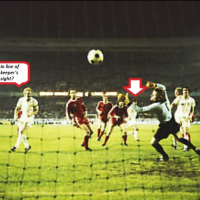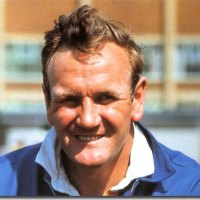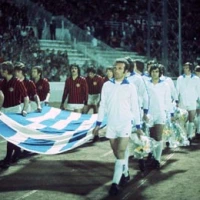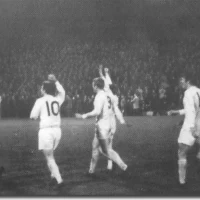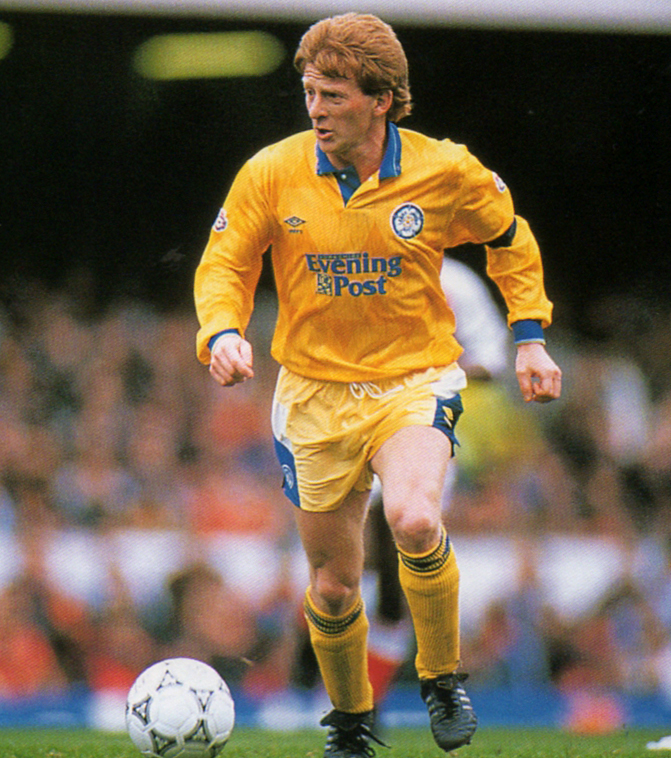
Younger brother Graham (left) with yours truly in happier times
Five years ago, I found myself in the unhappy position of having to pen a tribute to my Dad, a lifelong Leeds United fan, after he passed away due to complications of Alzheimer’s Disease a few months short of his 88th birthday. I remember that writing the article helped me come to terms with the fact that Dad really had gone from us; even though he’d been ill for a long time, I found it hard to comprehend that I’d never see him again, and it didn’t really sink in until a few months later, long after his funeral. I’m just not very good, I suppose, at accepting finalities.
This failing on my part to acknowledge or accept ultimate loss has been brought home to me again this last week or so, with the news that my brother Graham had died suddenly, over the weekend before last, at the age of only 56. Gray was actually two years younger than me and, although his health had been poor since a major illness about fifteen years back, he’d seemed to have made a recovery of sorts. Certainly the last thing any of us expected was to hear that he’d passed away, and again, I’m struggling to get my head around it. This feeling of disbelief is hardly helped by the fact that, like many brothers, we weren’t particularly close for long periods, and our disagreements and quarrels were many. Sibling rivalry, fraternal friction, call it what you will there was usually some strife. So, this sense of sudden loss is tinged with regret and a certain amount of guilt too – as if the death of a younger brother wasn’t bad enough already. The last year or so of his life was one of those extended mutual stand-off times, something I’ll clearly never be able to put right. It is what it is, sadly. Our Gray could be an awkward bugger at times – but, then again, so can I.
One thing that Gray and I always had in common was Leeds United; despite being two years younger, he started going to Elland Road a good few years before I did, and was privileged to see Don Revie’s Super Leeds in action, whereas I had to make do initially with Armfield’s Aces in 1975. And, as we all know, it was all downhill from there until Sergeant Wilko turned up 13 years later. But over those first few seasons of my fanaticism, Gray and I shared many trips to see the Whites play, especially at home games, when we’d board the old Ponte supporters bus on Horsefair in town and set off, more in hope than expectation. On one memorable occasion, I leaned too heavily on the emergency exit at the back of the bus as we pulled into the Elland Road car park, and fell out. I was left sprawling in the dust as my brother and his mates wet themselves laughing at my humiliation. It was a story he recounted with evident relish and amusement as best man at my wedding years later. He also mentioned the frequent occasions we’d return home after some dire defeat, to be met by our Dad with his doom-laden verdict of “Never again”. Dad had had enough of Leeds United by the eighties – I don’t think he’d ever really forgiven them for selling John Charles – and he assumed that we’d have had enough too, after each successive disappointment. I’d like to think that they’re continuing that argument somewhere right now, Dad and Gray, perhaps over some heavenly pint in the company of a few lost heroes.
Gray didn’t die as a result of the current COVID-19 crisis, it was his existing health problems that caught up with him. Still, lockdown has its effect on everything these days and, sadly, Graham’s funeral next Tuesday at Pontefract Crematorium will be a severely restricted affair, limited to ten mourners in the building itself. But funerals are mainly for those left behind, and the priority on the day for my remaining brother Mike and myself will be to support our Mum, who’s 83, as well as Gray’s two sons Stuart and Matthew, and of course his partner Julie. The idea is that, as and when this virus situation eases and we regain at least a measure of freedom, we’ll be able to organise something whereby Gray’s life can be celebrated properly, with a few drinks being sunk and a few hoary old anecdotes retold, as he’d most certainly have wanted.
Clearly, in the context of this blog, one particularly bitter regret is that Gray will never get to see Leeds United back in the top flight. I have a feeling that the achievement of promotion would have enabled us both to overcome our recent differences and disagreements, to mark the return of the club we’ve both loved for decades now, finally back to where they belong. It’s a milestone we’d doubtless have marked in a suitably drunken manner, which after all is how most reconciliations occur. That’s just a futile dream now, but still I hope that the club will be able to get over the line somehow, despite this awful bug and what it’s done to us all. It’s just such a shame that, when it does happen, Gray won’t see it.
It was my Dad and Graham who flew the flag for Leeds United in our family, long before I got hooked, so it’s somehow fitting that they’re now reunited as the club’s on the verge of a new era. It lends a new level of meaning for me to “Marching On Together”, and I shall definitely be raising a glass to them both when that glorious day finally arrives.
RIP Graham Atkinson. 10th August 1963 – 19th April 2020 MOT WAFLL WACCOE LUFC





